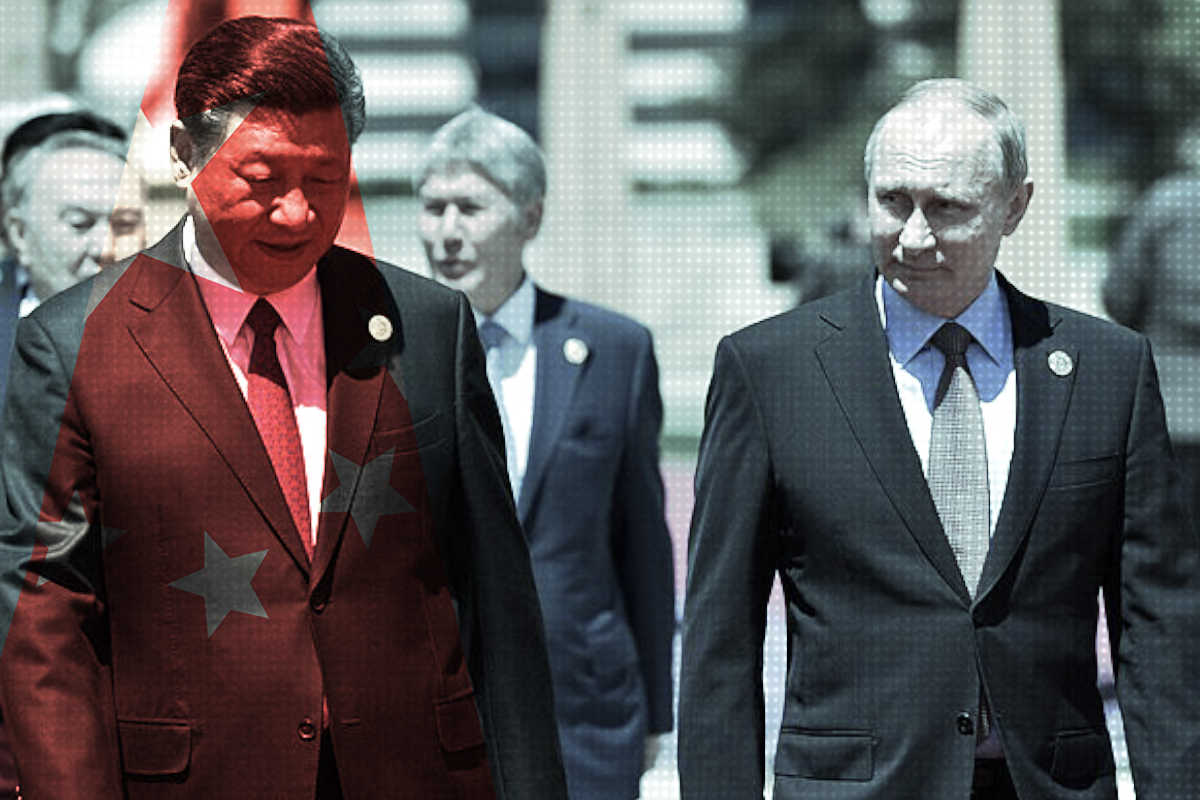
Screenshot of video report on Luo Changping, the former magazine editor who was detained in China in October 2021 after criticizing a CCP propaganda film on the Korean War. The shutdown of Luo’s social media account was announced yesterday.
In its latest crackdown on social media influencers, the Cyberspace Administration of China (CAC) announced yesterday that it had shut down around 20,000 “top online influencer accounts” (头部账号), including the account of a well-known former magazine editor who was detained back in October on charges that he had “insulted heroes and martyrs.”
The CAC notice, which was also posted to its social media account “CAC China” (网信中国), cited a range of violations, and emphasized that such accounts must abide by “correct guidance,” a phrase that points to the CCP’s policy of exercising control of the agenda through control of the media, ultimately ensuring the stability of the regime. In the Xi era, the language of “guidance,” which once applied more directly to traditional media, has expanded to apply to all of cyberspace, meaning that individual users are now bound by its mandate. Four years ago new CAC rules on online chat groups explicitly stated that “providers of information services through internet chat groups on the internet, and users, must adhere to correct guidance, promoting socialist core values.”
In the CAC notice, the accounts in question were explicitly accused of having “spread erroneous guidance” (传播错误导向). The notice also mentioned that the accounts have “media properties and a social mobilization function,” language clearly indicating that influence is now a primary criterion in considering disciplinary action against online accounts.
The notice said a number of “top online influencers” had “insulted heroes and martyrs,” a reference a law adopted in 2018 – and designed to promote patriotism and “socialist core values” – that made it a crime to question the authenticity of CCP narratives such as that of the soldier Lei Feng (雷锋), who since the early 1960s has been a poster boy of selfless dedication to the Party.
Among those accounts singled out for censure on these grounds was that of Luo Changping (罗昌平), a former investigative reporter and editor for Caijing magazine who in October was detained by police in Hainan province for a commentary on social media that was critical of The Battle at Lake Changjin, the war epic on Chinese volunteer soldiers fighting in the Korean War. As the news of Luo’s detention was reported in domestic media in October, including the Global Times, his background as a professional journalist was elided, and he was identified only as an “online influencer.”
Other influencers had, according to the notice, “recklessly created and spread rumors, interfering with orderly internet communication.” Still other accounts were shut down due to allegations of tax evasion and “such illegal activity.”
“The internet is not a land outside the law,” the notice said, employing a phrase that has been oft-repeated in the Xi Jinping era, becoming a regular feature of high-level discussions about cyberspace, but which first appeared around 2006 as the Information Office of the State Council discussed ways to “govern the internet according to the law” (依法管网).




















